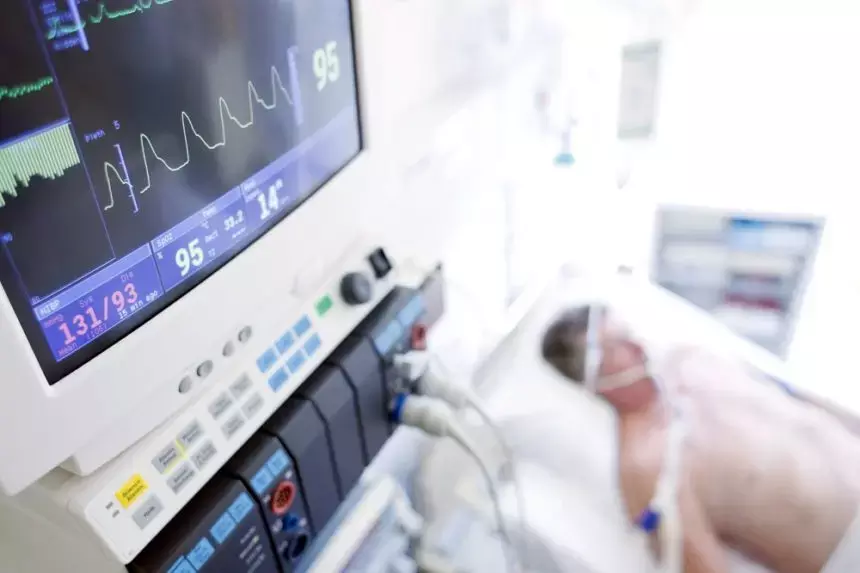- Home
- Medical news & Guidelines
- Anesthesiology
- Cardiology and CTVS
- Critical Care
- Dentistry
- Dermatology
- Diabetes and Endocrinology
- ENT
- Gastroenterology
- Medicine
- Nephrology
- Neurology
- Obstretics-Gynaecology
- Oncology
- Ophthalmology
- Orthopaedics
- Pediatrics-Neonatology
- Psychiatry
- Pulmonology
- Radiology
- Surgery
- Urology
- Laboratory Medicine
- Diet
- Nursing
- Paramedical
- Physiotherapy
- Health news
- Fact Check
- Bone Health Fact Check
- Brain Health Fact Check
- Cancer Related Fact Check
- Child Care Fact Check
- Dental and oral health fact check
- Diabetes and metabolic health fact check
- Diet and Nutrition Fact Check
- Eye and ENT Care Fact Check
- Fitness fact check
- Gut health fact check
- Heart health fact check
- Kidney health fact check
- Medical education fact check
- Men's health fact check
- Respiratory fact check
- Skin and hair care fact check
- Vaccine and Immunization fact check
- Women's health fact check
- AYUSH
- State News
- Andaman and Nicobar Islands
- Andhra Pradesh
- Arunachal Pradesh
- Assam
- Bihar
- Chandigarh
- Chattisgarh
- Dadra and Nagar Haveli
- Daman and Diu
- Delhi
- Goa
- Gujarat
- Haryana
- Himachal Pradesh
- Jammu & Kashmir
- Jharkhand
- Karnataka
- Kerala
- Ladakh
- Lakshadweep
- Madhya Pradesh
- Maharashtra
- Manipur
- Meghalaya
- Mizoram
- Nagaland
- Odisha
- Puducherry
- Punjab
- Rajasthan
- Sikkim
- Tamil Nadu
- Telangana
- Tripura
- Uttar Pradesh
- Uttrakhand
- West Bengal
- Medical Education
- Industry
Conservative therapy for inpatient hypertension bests antihypertensive intensification: JAMA

A research team of America suggests, in the absence of evidence of end-organ damage, conservative management was associated with improved outcomes compared with more intensive management for asymptomatic hypertension among hospitalized patients. The research has been published in the JAMA Internal Medicine on December 28, 2020.
Previous studies suggest that inpatient practitioners commonly intensify patients' antihypertensive regimens at hospital discharge, including patients with previously well-controlled outpatient BPs. This finding implies that clinical practice may largely be driven by reflexive responses to elevated inpatient recordings being continued at discharge rather than planned adjustment of outpatient regimens. Although evidence-based recommendations exist for outpatient management of hypertension, guidelines for treating inpatients with elevated blood pressure (BP) are lacking. Recent data suggest that a less-intensive approach is best. Because intensification of antihypertensive regimens is common in hospitalized and a subject of debate, understanding the actual benefits and harms of this practice is essential. For this purpose, researchers conducted a study to characterize clinician response to BP in the hospital and at discharge and to compare short- and long-term outcomes associated with antihypertensive treatment intensification.
It was an observational cohort study based on electronic medical record data from 2017 at 10 Cleveland Clinic hospitals. Researchers included 22,834 adults (mean age 65.6 years, 56.9% women, 69.9% White) admitted to a medicine service excluding those with cardiovascular diagnoses, like acute coronary syndrome and cerebrovascular accident, that require specific BP management. They used Demographic and BP characteristics for propensity matching. The major outcome assessed was the association between acute hypertension treatment and subsequent inpatient acute kidney injury, myocardial injury, and stroke. Postdischarge outcomes assessed were stroke and myocardial infarction within 30 days and BP control up to 1 year.
Key findings of the study were:
♦ Systolic BP 140 mm Hg or higher was recorded at least once during admission in 17,821 individuals among which 5904 (33.1%) were treated.
♦ The researchers noted a total of 8692 of 106 097 cases (8.2%) of hypertensive systolic BPs were treated; of these, 5747 (66%) were treated with oral medications.
♦ In a propensity-matched sample controlling for patient and BP characteristics, they found treated patients tended to be at higher cardiovascular risk and subsequent acute kidney injury.
♦ They noted in the article "There was no BP interval in which treated patients had better outcomes than untreated patients"
♦They observed a total of 1645 of 17 821 patients (9%) with hypertension were discharged with an intensified antihypertensive regimen. However, the medication intensification at discharge was found to be not associated with better BP control in the following year.
The authors concluded, " In this cohort study, hypertension was common among medical inpatients, but antihypertensive treatment intensification was not. Intensification of therapy without signs of end-organ damage was associated with worse outcomes".
For further information:
https://jamanetwork.com/journals/jamainternalmedicine/article-abstract/2774562
Dr Kartikeya Kohli is an Internal Medicine Consultant at Sitaram Bhartia Hospital in Delhi with super speciality training in Nephrology. He has worked with various eminent hospitals like Indraprastha Apollo Hospital, Sir Gangaram Hospital. He holds an MBBS from Kasturba Medical College Manipal, DNB Internal Medicine, Post Graduate Diploma in Clinical Research and Business Development, Fellow DNB Nephrology, MRCP and ECFMG Certification. He has been closely associated with India Medical Association South Delhi Branch and Delhi Medical Association and has been organising continuing medical education programs on their behalf from time to time. Further he has been contributing medical articles for their newsletters as well. He is also associated with electronic media and TV for conduction and presentation of health programs. He has been associated with Medical Dialogues for last 3 years and contributing articles on regular basis.
Dr Kamal Kant Kohli-MBBS, DTCD- a chest specialist with more than 30 years of practice and a flair for writing clinical articles, Dr Kamal Kant Kohli joined Medical Dialogues as a Chief Editor of Medical News. Besides writing articles, as an editor, he proofreads and verifies all the medical content published on Medical Dialogues including those coming from journals, studies,medical conferences,guidelines etc. Email: drkohli@medicaldialogues.in. Contact no. 011-43720751


